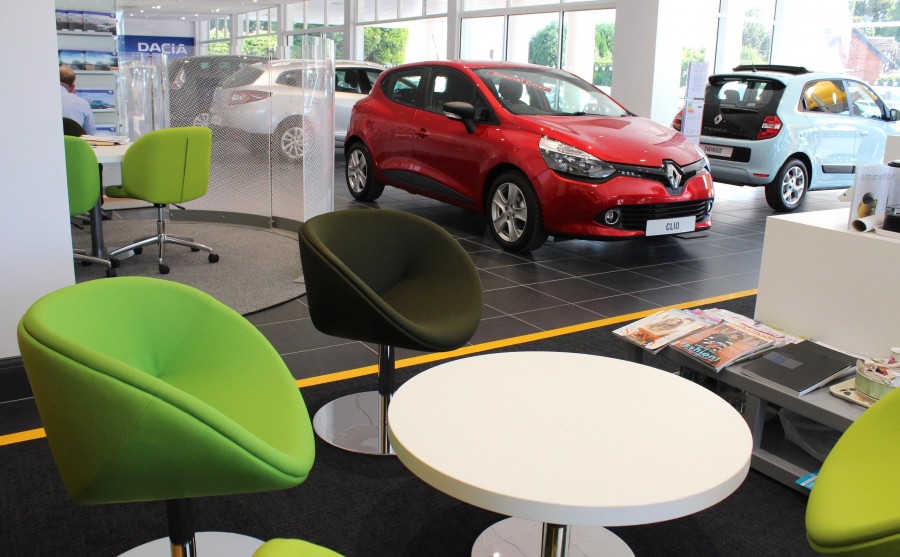What's the news?
Ireland's car industry could be teetering on the brink of a 2009-style sales disaster next year, if the Government doesn't heed warnings about the need for an updated vehicle taxations system.
According to the Society of the Irish Motor Industry, we're heading towards a 'cliff edge' of a car sales disaster, because of the full implementation of the WLTP economy and emissions standards. WLTP - the World harmonised Light duty vehicle Testing Procedure - was brought in last year, partially as a result of the diesel emissions scandal, to replace the discredited old NEDC test. Because the WLTP test is more stringent, and has fewer loopholes through which the car makers can cheat, it results in higher CO2 emissions figures.
Up till now, cars have been taxed according to an updated 'NEDC2' test result - tougher than the old test, but not the full-on WLTP figure - and so cars have mostly stayed in the same tax band. In January though, unless the Government moves to change the Vehicle Registration Tax (VRT) and motor tax system, many models are going to jump one, two, even three tax bands and rapidly become unaffordable. Many mainstream family models could see their prices increase by as much as €4,000 overnight.
Needless to say, if this happens, SIMI is predicting sales armageddon, and more and more people turning to cheap UK imports, which will have further knock-on effects on second hand prices here. In 2009, 14,000 jobs in the industry were lost, 150 dealers and motor-industry related companies shut down, and Government lost €1-billion in vehicle-based taxes.
"In this already fragile business environment for car retailers, it is vital that Budget 2020 recognises the importance of new cars; to the economy, in terms of local employment and in terms of tax revenues; and to the environment as the renewal of the Irish car fleet with new vehicles, is the only way to make a material and sustainable move to reducing emissions from the private car. Our Industry is very concerned and angry at the possibility of sleepwalking into another potential 2009" said Brian Cooke, SIMI director general. "The State must stop overburdening new cleaner cars with tax, while at the same time ignoring the problem of replacing older cars, which is where the real emissions problems lie. In fact, it's even worse, the VRT system discriminates against new cars when compared to older used imports. It would appear from various publications that the new car is being lined up as the easy target as if new cars are the main issue. Newer cars have the most up-to-date emission technologies and are less environmentally damaging than older used cars. Uncertainty in the market leads to consumers holding onto their older car or importing an older car that is perceived to be good value.
"With the full move to WLTP emissions testing on the horizon, Budget 2020 must make allowance for the difference between the new and old emission testing systems. Most other EU countries have followed the EU Commission view that consumers should not be faced with increased taxation due to the new emissions testing regime. Ireland should be no different. We should be selling 150,000 new cars each year, but with threats of Brexit this number has already fallen to 112,000. If a VRT increase is thrown into the mix for 2020, we will see a further fall; history, in particular 2009 tells us what can happen.
"Last week the Government's Climate Action Plan proposed a transition to zero emission transport, which the Industry fully supports and is proactively engaged in rolling out cleaner technologies. However, it is important to note that this transition is not deliverable in the short-term, as it will take a number of years to achieve, longer than is proposed in the Plan. We require the right measures that focus on gradual change and include sensible policies aimed at encouraging motorist to make the right choices that can lead to clean, affordable and convenient mobility solutions. This can only be achieved by allowing the new car market to flourish in 2020, which has clear environmental and economic benefits.
So let's not make the mistakes of the past. Progressive changes to VRT should be focused at replacing older cars with new ones. This is the only way to start the transition to a low and ultimately zero-emission free fleet. In that way we will all win, the consumer, the Industry, the Environment, protecting the 47,000 jobs and businesses in our communities."

